If you’re like me, you’re always on the lookout for the best ways to keep your flock happy and healthy. One question that’s been on my mind lately is whether chickens can eat sweet feed. After all, if our larger farm animals enjoy it, why not our feathered friends? Well, I’ve done the research and am here to give you the lowdown on whether sweet feed is a good choice for your chickens.
The short answer to the question, can chickens eat sweet feed? is both yes and no. While chickens can technically consume sweet feed, it may not be the best choice for their health and well-being. The high sugar content and lower protein levels in sweet feed make it less ideal for chickens, especially compared to other feeding options designed for their needs.
As a fellow chicken owner, I understand the importance of making informed decisions regarding our flocks. In this article, we’ll dive deeper into the world of sweet feed and its potential effects on your chickens. We’ll explore the nutritional requirements of our beloved birds, alternative feeding options, and how to ensure your flock stays clucking, laying, and thriving. So, let’s get started on this sweet feed adventure together!
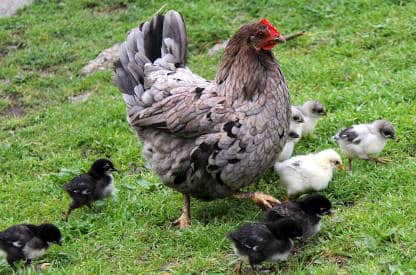
What is Sweet Feed?
First things first, what exactly is sweet feed? It’s a type of livestock feed that combines grains, such as corn, oats, or barley, with molasses, which gives it its sweet flavor. There are various sweet feed mixes, each with its unique blend of ingredients. The molasses makes the feed more palatable for animals and helps bind the ingredients together and reduce dust.
Sweet feed is often used for horses, cattle, and goats, but its suitability for chickens is still up for debate. While some livestock may thrive on sweet feed, it’s important to consider the specific nutritional needs of your chickens before jumping on the sweet feed bandwagon.
[ChickenAffiliate]
Nutritional Requirements of Chickens
Chickens have their own dietary requirements to support their growth, egg production, and overall health. They need a mix of protein, carbohydrates, fats, vitamins, and minerals to thrive. Grains are an essential energy source for chickens, while proteins from plant or animal sources support growth and egg production. Vegetables and fruits can provide essential vitamins and minerals, while grit helps digestion.
A balanced diet is key for your flock, as deficiencies or imbalances can lead to health issues, poor egg production, and unhappy birds. So, let’s take a closer look at sweet feed and see if it fits the bill for your chickens.
Can Chickens Eat Sweet Feed?
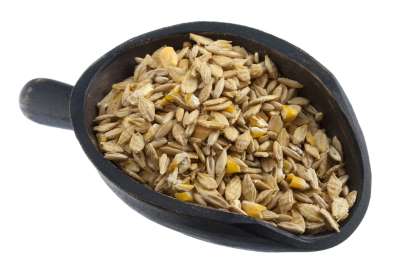
Now, for the million-dollar question: can chickens eat sweet feed? Well, the answer is both yes and no. Let’s break it down.
The potential benefits of sweet feed for chickens lie in its grain content. Grains, as we mentioned earlier, provide essential energy for your birds. The molasses in sweet feed can also be a source of quick energy, and its sweet taste might make it more appealing to picky eaters.
However, there are several potential drawbacks to feeding sweet feed to your flock. First and foremost, the protein content in sweet feed is often lower than what chickens require, especially for laying hens. This can lead to reduced egg production and poor growth in young birds.
Another concern is the high sugar content in sweet feed, which stems from the added molasses. Chickens don’t have the same nutritional needs as horses or cows, so too much sugar can lead to obesity and other health issues.
Additionally, sweet feed tends to have a shorter shelf life due to its moisture content, and it can become moldy if not stored properly. Moldy feed is a big no-no for chickens, as it can cause serious health problems.
In short, while chickens can technically eat sweet feed, it may not be the best option for their long-term health and well-being.
Safely Offering Sweet Feed as a Treat
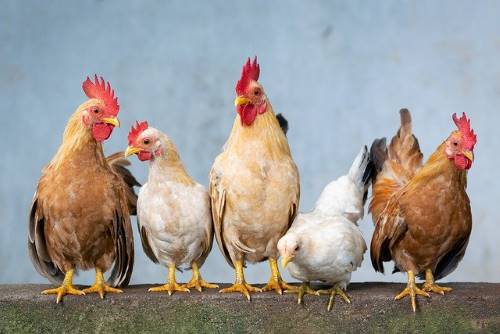
If you’re still keen on giving your chickens a taste of sweet feed, doing so responsibly and with their well-being in mind is essential. Here are some tips to safely offer sweet feed to your flock.
Moderation is key
Remember that sweet feed is high in sugar and should be offered sparingly. Limit sweet feed to occasional treats and ensure it doesn’t make up a significant portion of their diet.
Mix it with their regular feed
To balance the nutritional content, consider mixing a small amount of sweet feed with your flock’s regular chicken feed. This can help ensure they’re still getting the essential nutrients they need while enjoying the taste of sweet feed.
Monitor your flock’s health
Keep a close eye on your chickens after introducing sweet feed. Watch for any signs of obesity, poor egg production, or other health issues that could be linked to their diet. If you notice any problems, consider reducing the sweet feed or eliminating it from their diet.
Proper storage
Due to its moisture content, sweet feed has a shorter shelf life and is more susceptible to mold. Always store sweet feed in a cool, dry place, and check for any signs of mold before offering it to your chickens. Moldy feed can cause serious health problems for your flock, so it’s crucial to ensure the feed you provide is fresh and safe.
In summary, while sweet feed may not be the ideal choice for your chickens, offering it as an occasional treat is possible if done responsibly. Always prioritize a balanced diet tailored to your flock’s needs, and monitor their health closely to ensure they’re getting the nutrition they require. A happy, healthy flock is the goal, and with careful attention to their dietary needs, you can keep your chickens clucking, laying, and thriving.
Alternative Feeding Options for Chickens
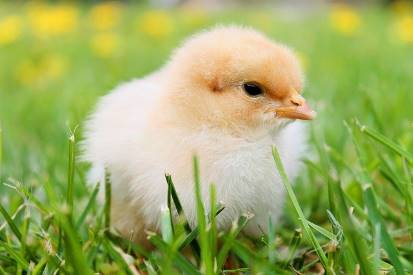
So, if sweet feed isn’t the best choice for your flock, what are some alternatives? There are several options to consider, each with its benefits and drawbacks.
Layer feed, grower feed, and starter feed
These specialized feeds are designed to meet the specific nutritional needs of your chickens at different stages of their lives. Layer feed is formulated for laying hens, grower feed for adolescent birds, and starter feed for chicks.
These feeds often contain grains, proteins, and essential vitamins and minerals to support your flock’s health and growth.
Free-ranging and foraging
Allowing your chickens to free-range and forage for their food can be an excellent way to supplement their diet. Chickens are natural foragers who happily scratch around for seeds, insects, and plants. This provides them with a variety of nutrients and gives them exercise and mental stimulation.
However, it’s essential to ensure that your chickens have access to a balanced diet, as relying solely on foraging may not provide all the nutrients they need.
Supplementing with vegetables, fruits, and insects
You can also enhance your flock’s diet by offering fresh fruits, vegetables, and insects like mealworms or crickets. These treats provide additional vitamins, minerals, and protein, but be sure to offer them in moderation, as too many treats can lead to an imbalanced diet.
Additionally, always research which foods are safe for your chickens, as some fruits and vegetables can harm them.
What Other Feeds Can Chickens Eat?
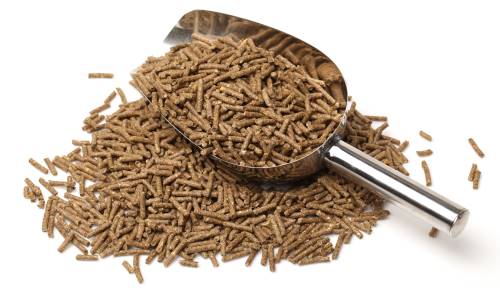
As chicken owners, we often wonder if we can share feed from our other furry (or feathery) friends with our clucking companions. While it’s tempting to simply toss some extra sweet or other pet feeds to your chickens, it’s important to consider whether these feeds are good for them. This section will explore five different types of feeds and discuss their suitability for your flock.
Dog Food
While dog food isn’t an ideal feed for chickens, it can be given in moderation as a treat. Dog food often contains high protein levels, which can benefit your flock, especially if they’re molting or growing.
However, it’s crucial not to rely solely on dog food, as it doesn’t provide the complete range of nutrients chickens need. Use it sparingly, and always prioritize a balanced chicken diet.
Read More: Can Chickens Eat Dog Food? The Truth Revealed
Rabbit Food
Rabbit food, particularly the pellet variety, can be an acceptable treat for chickens, but it shouldn’t make up a significant portion of their diet. While rabbit pellets may contain some grains and plant-based proteins that chickens can benefit from, they are formulated specifically for rabbits and may not provide the right balance of nutrients for chickens.
As with any treat, offer rabbit food in moderation.
Read More: Can Chickens Eat Rabbit Food? Simple Answer & Feeding Tips
Cat Food
Like dog food, cat food can be given to chickens as an occasional treat, but it should never be their main source of nutrition. Cat food is high in protein, which can be beneficial for chickens, but it’s not formulated with the specific nutritional requirements of chickens in mind.
Treats like cat food should be offered sparingly, and chickens should primarily be fed a balanced diet designed for their needs.
Read More: Can Chickens Eat Cat Food? Discover The Surprising Answer
Goat Feed
Goat feed can be an acceptable treat for chickens, as it often contains grains and plant-based proteins that can benefit your flock. However, goat feed is designed for the nutritional needs of goats, not chickens, so it should not be the main component of their diet.
Offer goat feed in moderation, and remember to maintain a balanced diet for your chickens using feeds specifically formulated for them.
Read More: Can Chickens Eat Goat Feed? Risks & Alternatives Explained
Horse Feed
Horse feed, especially sweet feed, is not recommended as a primary food source for chickens due to its high sugar content and lower protein levels. While chickens can consume horse feed, it doesn’t provide the optimal balance of nutrients they require.
If you offer horse feed to your chickens, do so in moderation and ensure they have access to a balanced chicken diet to meet their nutritional needs.
Read More: Can Chickens Eat Horse Feed? Uncovering The Truth & Alternatives
In conclusion, while chickens can consume a variety of pet feeds as occasional treats, it’s crucial to prioritize their specific dietary requirements. A balanced chicken feed should always be your flock’s primary nutrition source, with other feeds offered sparingly to supplement their diet.
Can chickens eat sweet feed – final thoughts
Well, we’ve reached the end of our sweet feed journey, and it’s time to answer that burning question once and for all: can chickens eat sweet feed? While it’s true that chickens can consume sweet feed, it’s not necessarily the best choice for their diet.
With its high sugar content and lower protein levels, sweet feed may fall short of providing the optimal balance of nutrients that our feathered friends need to stay healthy and productive.
In conclusion, let’s continue to prioritize the well-being of our flocks by choosing feeding options tailored to their needs. Finding the perfect balance for your flock is essential, whether it’s specialized chicken feed, free-ranging, or supplementing with fruits, veggies, and insects.
Keep learning, asking questions, and sharing your chicken adventures with fellow enthusiasts like me. Let’s keep our coops filled with happy, healthy, clucking chickens!
Related Articles:
